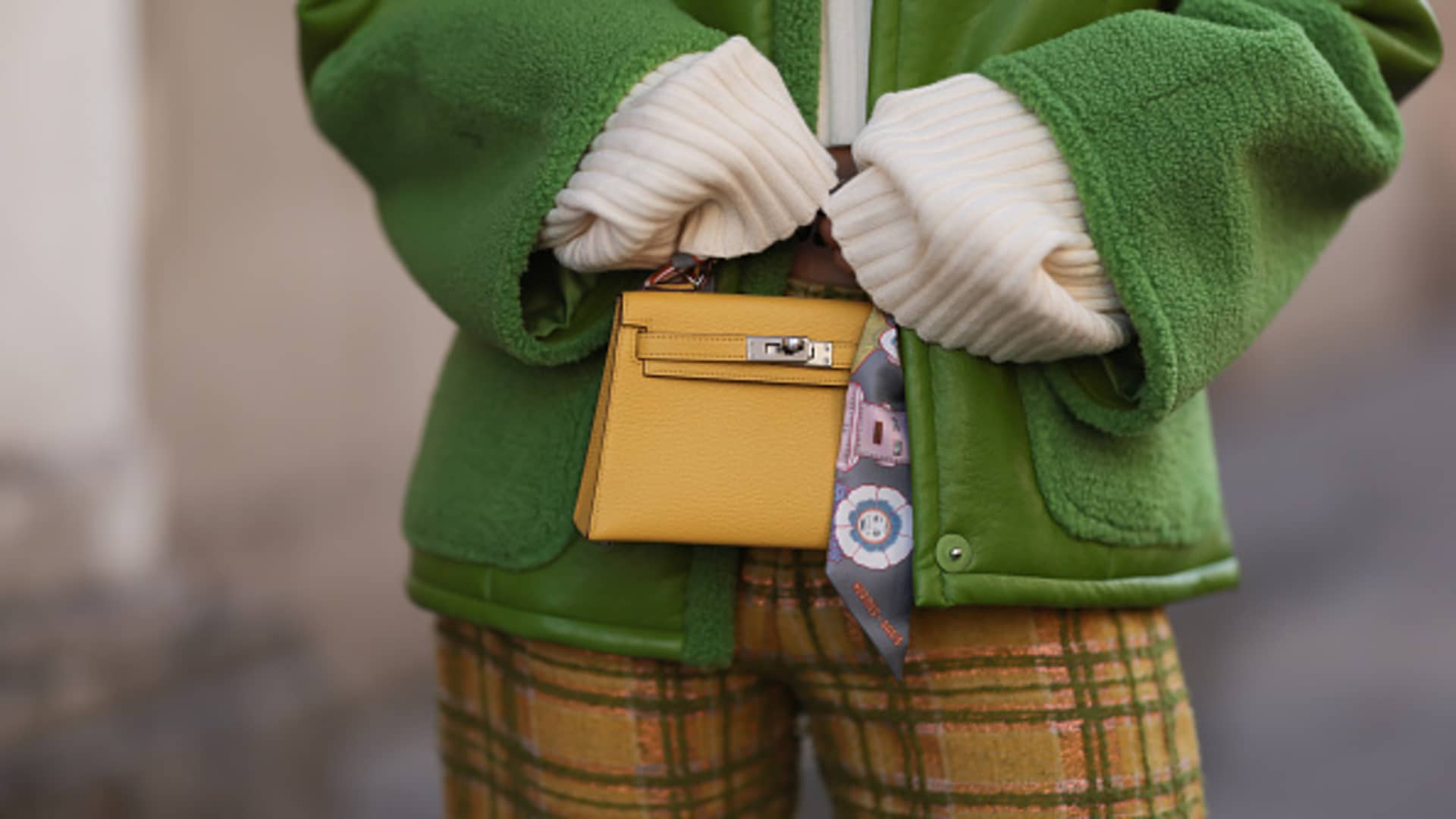It’s time to start treating handbags like a legitimate investment.
In 2020, the investment potential of handbags outpaced rare artwork, cars and whiskey, according to Art Market Research. By 2027, the market is expected to reach $100 billion, compared to today’s $72 billion.
As the founder of Rebag, a designer handbag resale site, I’ve kept a close eye on the resale value of sought-after luxury goods.
Based on our proprietary pricing tool, which uses millions of data points on primary and secondary market pricing and demand, here are six designer handbags that are actually worth the money — and the ones you may regret buying:
1. Telfar bags
Telfar Shopping Bag
Photo: Rebag
Thanks to high demand, limited drops and celebrity fans like Dua Lipa, Oprah Winfrey and Beyoncé, Telfar bags have an average value retention of 195%, meaning that they appreciate to nearly twice as much as their original retail price.
That’s well above other major designer names — like Chanel, for example, which boasts an average value retention of 87%.
Founded in 2005 by Telfar Clemens, any model of the Telfar Shopping Bag, especially the Ugg, Eastpak and Moose Knuckles collaborations, will earn at least its retail value at resale.
2. Hermès bags
Hermès Birkin Sellier
Photo: Rebag
Like Telfar, Hermès is a designer “unicorn.” On average, the brand’s products retain their initial retail value and are worth more on the resale market.
The French luxury brand has an average value retention of 103%. The Birkin and Kelly bags — named after Jane Birkin and Grace Kelly — do especially well at resale because they are two of Hermès’ marquee items.
Birkins have an average value retention of 96%, while the Kelly averages 108%. The rare Birkin Sellier has an especially high average value retention of 226%.
3. Louis Vuitton bags
Louis Vuitton x NBA Ball in Basket Bag
Photo: Rebag
Another designer “unicorn,” Louis Vuitton boasts some impressive resale values, especially on their short-release styles.
For example, the Nigo Keepall Bandoulière bag has a 119% average value retention, while the Louis Vuitton x NBA Ball in Basket Bag has a 147% average value retention.
The brand’s average retention value at resale is 92%.
4. Chanel bags
Chanel Deauville Tote
Photo: Rebag
The resale value of Chanel bags climbed with its primary market price increases. Up 12 percentage points from 2021, the brand’s average value retention is 87%, although several bags exceed 100%.
Chanel’s Deauville Tote and Grand Shopping Tote are among the highest-value bags, retaining an average of 112% and 110%, respectively, of their values on the secondary market.
5. Mini editions
Louis Vuitton Mini Speedy
Photo: Rebag
Mini editions are excellent investments because they are produced in smaller quantities and have high demand, often driving their secondary market values up.
For example, the Louis Vuitton Speedy Mini HL Handbag retains 201% of its value at resale, while a vintage Fendi Micro Baguette keeps 149% of its retail value on the secondary market.
6. Collaborations
Dior Daniel Arsham Double Zip Crossbody Pouch
Photo: Rebag
Collaborations are excellent investments because they’re limited editions that often sell out.
The Balenciaga and Gucci Hacker Project tote has a 122% average value retention, while The Hacker Project camera bag holds 116% of its initial retail value at resale.
Artist Daniel Arsham’s Dior collaboration also performs well, with its double-zip crossbody pouch keeping 139% of its retail value on the secondary market.
Not all designer handbags are good investments
Handbags that are too trendy often fall out of fashion within a few years, and therefore don’t hold much value on the secondary market.
Of course, there are a few exceptions: A bag may unexpectedly come back in style, increasing its average retention value, like in the case of the Dior Saddle, Balenciaga City and Fendi Baguette.
Consumers should also be wary of styles with a large supply and low demand, like the Louis Vuitton Alma, which only carries an average retention value of 67%.
Other handbag styles that typically don’t have a high investment value include the Chanel Tricolor Classic Double Flap bag, whose average retention value is only 38%, and the Prada Double Zip Lux Tote, which only yields 35% of its original value at resale.
Charles Gorra is the founder and CEO of Rebag. Previously, he worked at Rent The Runway, Goldman Sachs and TPG Capital. He earned an MBA from Harvard Business School in 2014 and a master in management from HEC-Paris in 2007.
Don’t miss:
